by Marie Snyder
 Noam Chomsky was rumoured to have left us almost a month ago, but he always told us not to trust the media!
Noam Chomsky was rumoured to have left us almost a month ago, but he always told us not to trust the media!
It appears he’s still alive at time of writing, and recovering at home from a stroke. Both The New Statesman and Jacoben published obituaries. Yanis Varoufakis claims his article about his friend was inadvertently published as an obituary (despite referencing Chomsky’s passing in it). That article has since disappeared. In shows that even the best of us can be duped. Vivek Chibber’s piece morphed into a tribute in which he said,
“Noam hasn’t just pointed to injustice where he saw it, no matter how remote–he has felt it . . . as an affront to his own sensibility. . . . He doesn’t just have educated opinions on a bewildering array of topics and geographical regions–he has real expertise. This is what has made him such a towering figure.”
Absolutely.
The benefit of mistakes like this (and there have been a lot of them) is getting to see what people really think of you!
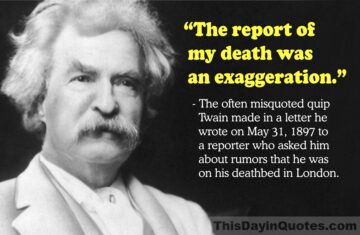
Chomsky is a different person than you or me — well, than me for sure. He has a wealth of knowledge and an astute analysis of events pretty much from the beginning of time to now all in his head and instantaneously available to him, but he’s also very down to earth, of the people. Most importantly, he gives us a framework of the world that’s necessary to understand in order to help us fight the good fight.
Out of the multitude of writings he’s produced in his 95 years, I think one of the most comprehensive places for the uninitiated to start is with Understanding Power: The Indispensable Chomsky, a collection of talks given between 1989 and 1999. Below, I’ve summarized the ideas down to ten common threads often seen elsewhere in his work, abridged without all the evidence – you have to read the full 400-paged book for that. (Page numbers are from the 2002 paperback edition.)
1. He openly disparages the use of unnecessarily complex words and ideas (like “praxis”), and explains how and why the university system (tied to corporations and governments) breeds elitist intellectualism:
“I think the idea that you’re supposed to have special qualifications to talk about world affairs is just another scam….it’s just another technique for making the population feel that they don’t know anything, and they’d better just stay out of it and let us smart guys run it. In order to do that, what you pretend is that there’s some esoteric discipline, and you’ve got to have some letters after your name before you can say anything about it. The fact is, that’s a joke” (137). “Don’t forget, part of the whole intellectual vocation is creating a niche for yourself, and if everybody can understand what you’re talking about, you’ve sort of lost, because then what makes you special? I think people should be extremely skeptical when intellectual life constructs structures which aren’t transparent….most of the time it’s just fakery” (229). “Universities…in many respects are not very different from the media in the way they function….they’re parasitic institutions that need to be supported from the outside” (233). Typically you’re going to find major efforts made to marginalize the honest and serious intellectuals, the people who are committed to what I would call Enlightenment values – values of truth, and freedom, and liberty, and justice. And those efforts will to a large extent succeed” (261).
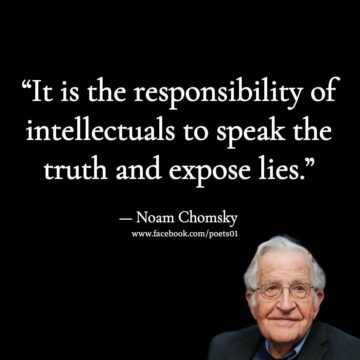
2. He has a plethora of evidence of shocking atrocities committed by the U.S. (and elsewhere) including using mercenary states which allow them to overtly support one side while covertly supporting the other. This in-depth information ensure that the public can see the severity of the current problem with our system:
“There’s a whole network of U.S. mercenary states….a massive international terrorist network run by the United States…military groups that unite the Western Hemisphere….Other countries hire terrorists, we hire terrorist states” (4-5). “In the 1960s, Israel started to be used as a conduit for intervening in the affairs of black African countries…the United States increasingly turned to Israel as a kind of a weapon against other parts of the Third World – Israel would provide armaments and training and computers and all sorts of other things to Third World dictatorships at times when it was hard for the U.S. government to give that support directly” (126). “The United States is permitted to carry out war crimes, it’s permitted to attack other countries, it’s permitted to ignore international law. On those things there’s a complete consensus” (56).
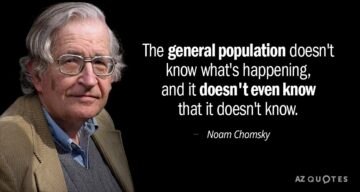
3. He acknowledges and details the illegitimate use of power in western governments today as they work towards improving their own lot at the expense of their citizens’. We could have a society in which every mouth is fed, but that would be bad for the government:
“Under the Sandinista government Nicaragua was in fact beginning economic development: it was establishing health programs and social programs, and things were starting to improve for the general population there. Well, that set off the alarm bells in New York and Washington, like it always does, and we had to stop it – because it was issuing an appeal to the ‘illiterate and mentally deficient’ in other desperate countries, like Honduras and Guatemala, to do the same thing. That’s what U.S. planners call the ‘domino theory,’ or the ‘threat of a good example,’ and pretty soon the whole U.S.-dominated system starts to fall apart” (40-41). “Germany has a kind of social contract we don’t have – one of the biggest unions there just won a 35-hour work-week….In the Netherlands, poverty among the elderly has gone down to flat zero, and among children it’s 4%….So even within the range of existing societies set up almost exactly like ours, there are plenty of other social policies you could have – and I think our system could tolerate those things too, it really just depends if there’s enough pressure to achieve them” (363). [The U.S. intentionally] “put the country so deeply in debt that there would be virtually no way for the government to pursue programs of social spending anymore” (380).
4. He clarifies that we’ve become accustomed to a corporate-dictated governmental system that has to be overthrown.
“Our economic system “works,” it just works in the interests of the masters, and I’d like to see one that works in the interests of the general population. And that will only happen when they are the ‘principal architects’ of policy, to borrow Adam Smith’s phrase. I mean, as long as power is narrowly concentrated…you know who’s going to benefit from the policies….That’s why democracy would be a good thing for the general public. But of course, achieving real democracy will require that the whole system of corporate capitalism be completely dismantled – because it’s radically anti-democratic….You have to build up alternative popular institutions, which could allow control over society’s investment decisions to be moved into the hands of working people and communities…a ‘participatory economy’” (140). “If capital is privately controlled, then people are going to have to rent themselves in order to survive. Now, you can say, ‘they rent themselves freely, it’s a free contract’ – but that’s a joke. If your choice is, ‘do what I tell you or starve,’ that’s not a choice – it’s in fact what was commonly referred to as wage slavery in more civilized times, like the eighteenth and nineteenth centuries, for example” (200). “There’s an experiment going on. The experiment is: can you marginalize a large part of the population, regard them as superfluous because they’re not helping you make those dazzling profits – and can you set up a world in which production is carried out by the most oppressed people, with the fewest rights, in the most flexible labor markets, for the happiness of the rich people of the world?“ (397-8).
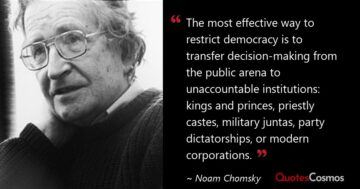
5. He insists we must have a government that is transparent and fair with a populous that keeps it on its toes through constant scrutiny and limited government control:
“If you want to traumatize people, treason trials are an extreme way – if there are spies running around in our midst, then we’re really in trouble, we’d better just listen to the government and stop thinking” (11). “Look, every government has a need to frighten its population, and one way of doing that is to shroud its working in mystery” (11). “Giving the state the power to determine what people can say does not improve the position of people who are now powerless.…It’s dangerous to impose such constraints on what people are allowed to say. There are other ways of dealing with it” (273-275).
6. He favours anarchy over our current form of pseudo-democracy:
“If a decision is made by some centralized authority, it is going to represent the interests of the particular group which is in power. But if power is actually rooted in large parts of the population – if people can actually participate in social planning – then they will presumably do so in terms of their own interests, and you can expect the decisions to reflect those interests. Well, the interest of the general population is to preserve human life; the interest of corporations is to make profits – those are fundamentally different interest” (60-61). “Anarchists have typically believed in a highly organized society, just one that’s organized democratically from below, [but the] “idea that people could be free is extremely frightening to anybody with power” (199). “The person who claims the legitimacy of the authority always bears the burden of justifying it. And if they can’t justify it, it’s illegitimate and should be dismantled. To tell you the truth, I don’t really understand anarchism as being much more than that” (202).
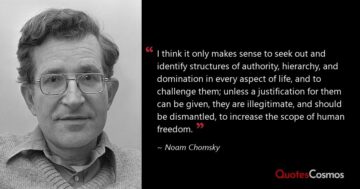
7. He explains how the media (owned by corporations in cahoots with governments) keep us from dissenting. Media should be a counterweight to the government, but that’s impossible when it’s corporate owned. They don’t care about attracting readers in order to sell papers, but in attracting advertisers.
“So what the media do, in effect, is to take the set of assumptions which express the basic ideas of the propaganda system…and then present a range of debate within that framework – so the debate only enhances the strength of the assumptions, ingraining them in people’s minds as the entire possible spectrum of opinion that there is….Under what’s sometimes been called “brainwashing under freedom,” the critics….make a major contribution to the cause by bounding the debate within certain acceptable limits – that’s why they’re tolerated, and in fact even honored” (13). The media, “have a commitment to indoctrination in the interests of power, and that imposes pretty strict limits on what they can do” (179).
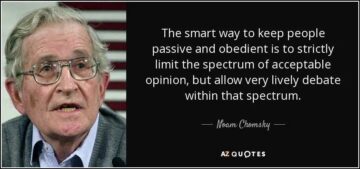
8. He cautions us about getting sucked into the trivia created to distract us from reacting to real problems in the world, what he calls ‘de-politicizing’ intelligent people by getting them to track sports statistics and the complex relationships on HBO series.
“It’s as though people want to work out mathematical problems, and if they don’t have calculus and arithmetic, they work them out with other structures…people just want to use their intelligence somehow….Spectator sports also have other useful functions too. For one thing they’re a great way to build up chauvinism – you start by developing these totally irrational loyalties early in life, and they translate very nicely to other areas….This sense of irrational loyalty to some sort of meaningless community is training for subordination to power….All of this stuff builds up extremely anti-social aspects of human psychology…irrational competition, irrational loyalty to power systems, passive acquiescence to quite awful values, really. In fact, it’s hard to imagine anything that contributes more fundamentally to authoritarian attitudes than this does, in addition to the fact that it just engages a lot of intelligence and keeps people away from other things….Soap operas…teach people other kinds of passivity and absurdity….These are the types of things which occupy most of the media….This stuff is a major part of the whole indoctrination and propaganda system” (99-100).
9. He’s clear that things are very bad – worse than in the depression, and not much different from feudal society:
“There was a lot of union organizing [in the 30s], and the struggles were very brutal….So it was not pretty by any means. But it was also not hopeless. Somehow that’s a tremendous difference: the slums are now hopeless, there’s nothing to do except prey on one another….For the first time in I think human history, middle-class kids now assume they are not going to live as well as their parents – that’s really something new; that’s never happened before” (45). “You can see it very clearly when you drive through New York now: the differences in wealth are like San Salvador….But it’s like living in a feudal system, with a lot of wild barbarians outside – except if you’re rich, you don’t ever see them, you just move between your castle and your limousine. And if you’re poor, you’ve got no castle to protect you” (48). “The idea is, ‘We smashed up the world and stole everything from it – now we’re not going to let anyone come and take any piece of it back.’ That’s an attitude I see right on the surface all over the place in the West these days” (176). “If we wait for an ecological disaster, it’ll be too late – in fact, we might not even have such a long wait” (388).
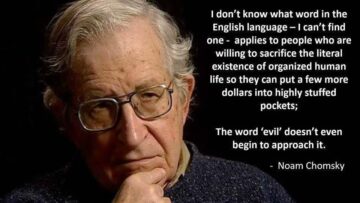
10. Yet, he’s hopeful. He shares myriad examples of how far we’ve come, and how possible it all is. We just need to avoid the red herrings – activities that get us spinning our wheels unproductively – and keep organizing, keep being noisy about it all, and, like every other movement for change, eventually it will come together into something that can’t be ignored.
“You couldn’t have predicted in 1954 that there was going to be a Civil Rights Movement” (68). “The trick is not to be isolated – if you’re isolated, like Winston Smith in 1984, then sooner or later you’re going to break…because if you can keep them isolated enough, you can get them to believe anything. But when people get together, all sorts of things are possible” (121). “Large-scale social changes in the past …have come about just because lots of people, working wherever they are, have worked hard, and have looked around to find other people who are working hard, and have tried to work together with them when they find them….It’s mostly just a question of scale and dedication” (179). “There isn’t ever one great person who leads a movement. It starts with tons of people, and maybe there’s one person who can give a good speech, but they’re not the one who leads – the people lead. It’s necessary to distort history and make it look as if Great Men did everything – that’s part of how you teach people they can’t do anything, they’re helpless, they just have to wait for some Great Man to come along and do it for them” (189). “The real work is being done by people who are not known, that’s always been true in every popular movement in history. The people who are known are riding the crest of some wave….But the point is, it’s the wave that matters” (322). Trying to convince the “elites” of your side: “That stops you from organizing, and getting people involved, and causing disruption, because now you’re talking to some elite smart guy – and you can do that forever” (186).
“I don’t feel like that in order to work hard for social change you need to be able to spell out a plan for a future society in any kind of detail. What I feel should drive a person to work for change are certain principles you’d like to see achieved….I think what you have to be able to do is spell out the principles you want to see such a society realize – and I think we can imagine many different ways in which a future society could realize them….The basic principle I would like to see communicated to people is the idea that every form of authority and domination and hierarchy, every authoritarian structure, has to prove that it’s justified” (201). “If you’re maximizing short-term profits without concern for the long-term effects, you are going to destroy the environment, for one thing” (316). “Labor movement just has to be international” (383).
This collection was written about over twenty years ago, and at the time, regarding what would happen if we knew we had 10 years to stop climate change instead of 100, Chomsky said,
“Given the state of the popular movements we have today, we’d probably have a fascist takeover – with everybody agreeing to it, because that would be the only method for survival that anyone could think of….So, you don’t wait for the disasters to happen, first you have to create the groundwork. You need to plant the seeds of something right now, so that whatever opportunities happen to arise,…people are in a position that they can do something constructive about it” (388-389).
You can’t look yourself in the mirror if you don’t make some effort in the right direction.
